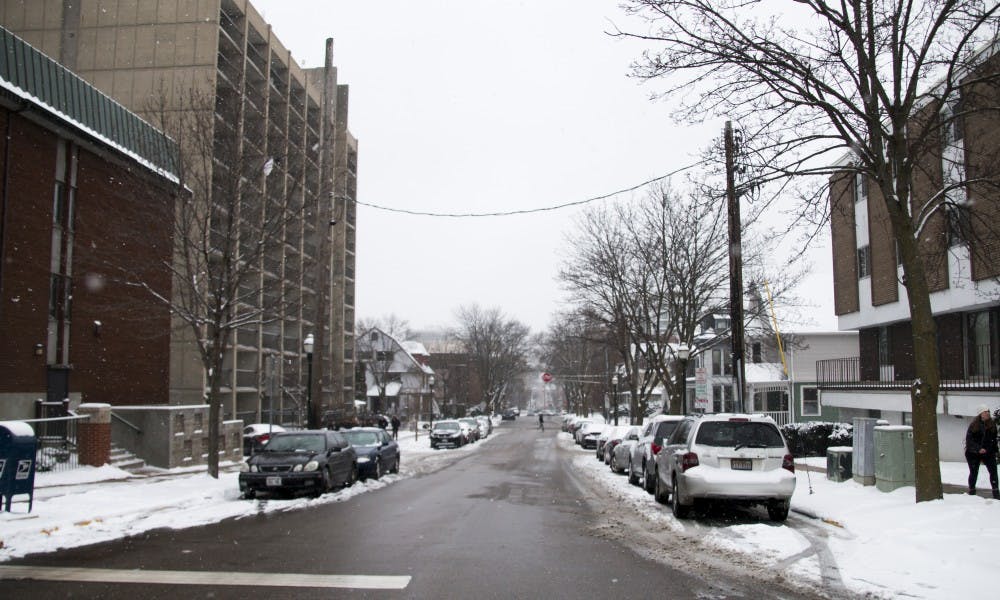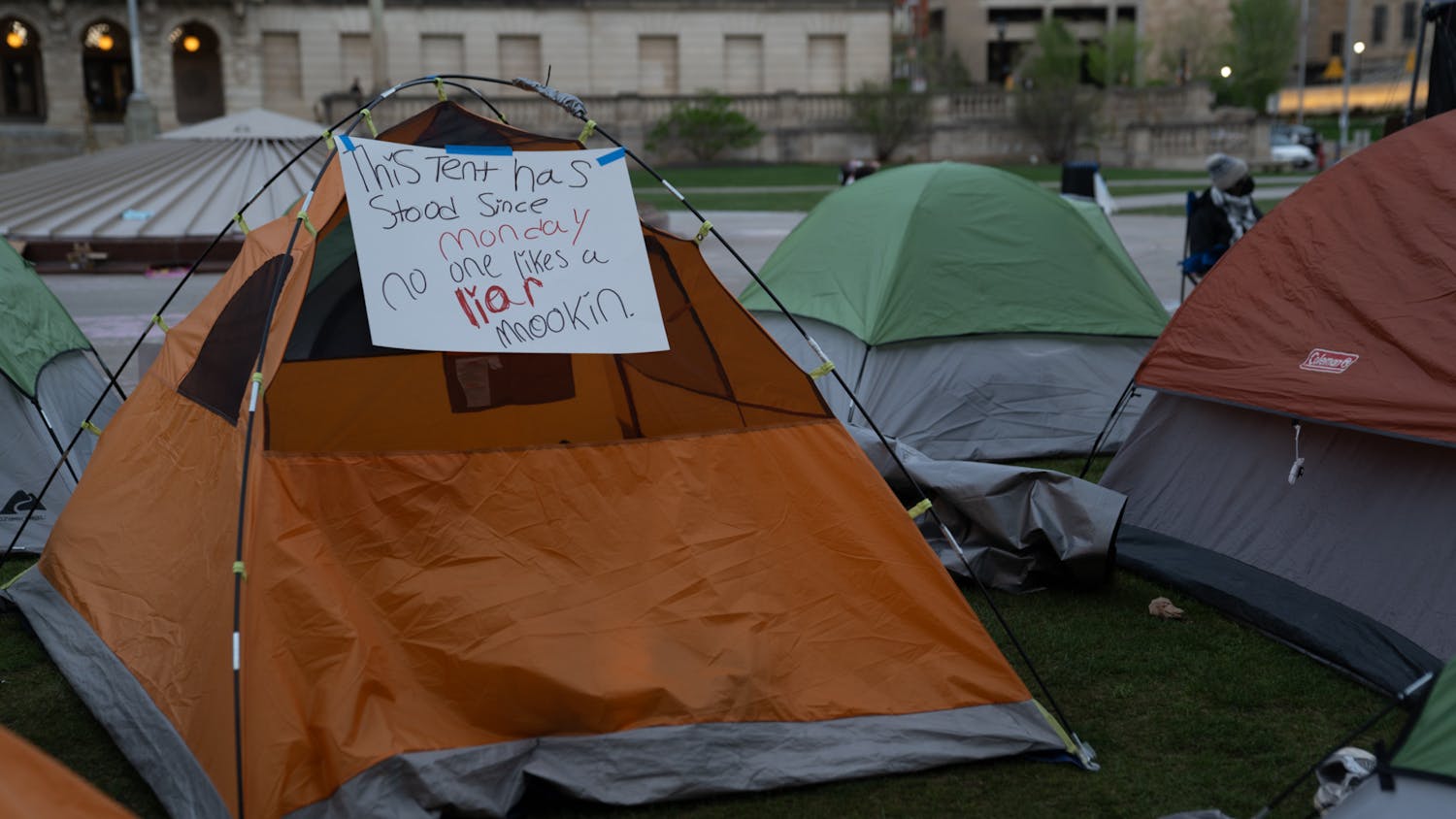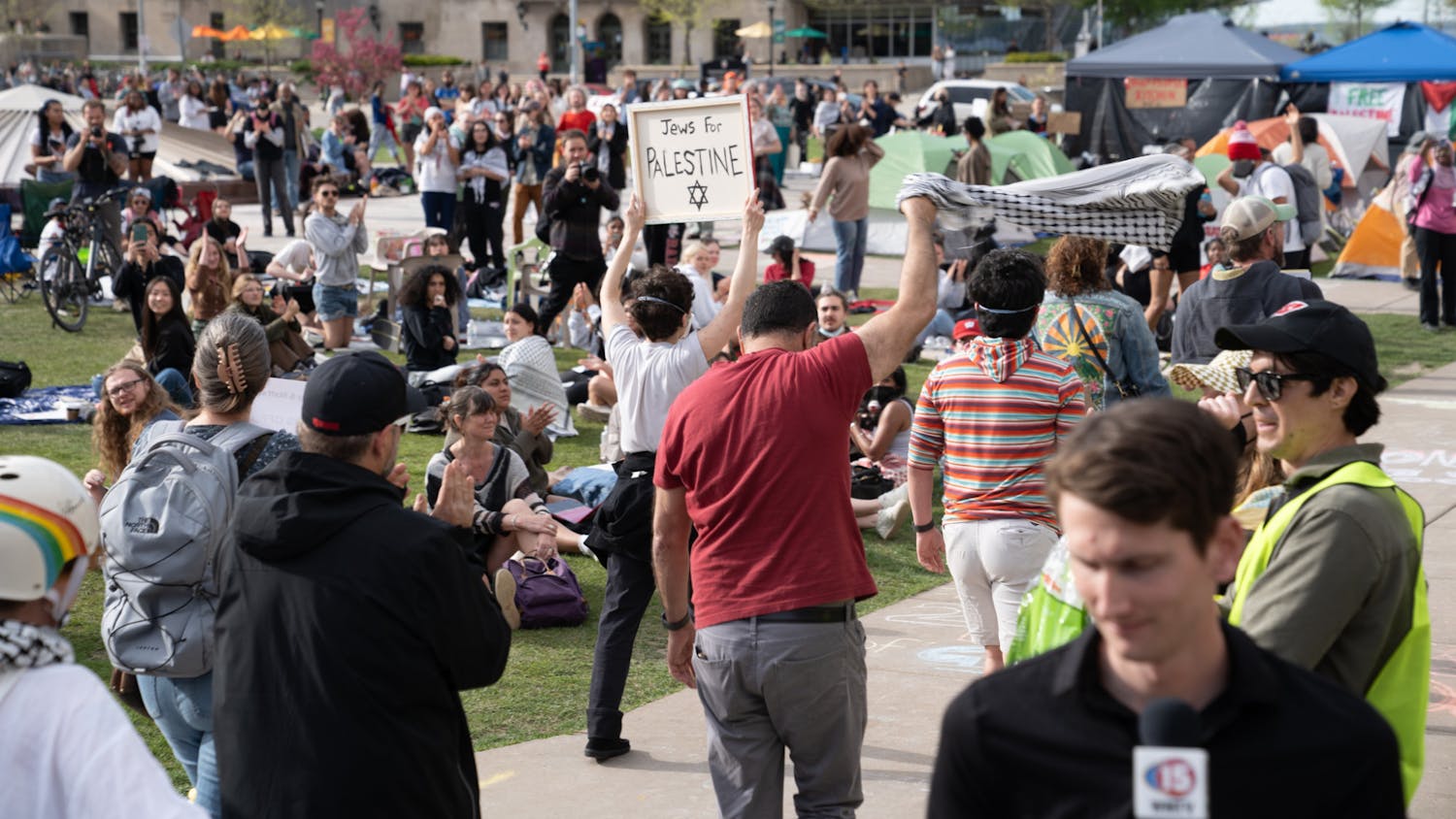After leaving a party her freshman year, UW-Madison student Alexandra Adams was sexually assaulted by a friend she had a crush on.
The next morning, he dismissively tossed her clothing on the bed and didn’t say goodbye as she left his apartment.
It wasn’t until a conversation with her nurse practitioner months after the party that Adams began using the word “assault” to describe her experience.
“She said, ‘I don’t want to label this for you, but it sounds like assault to me,’ and I was like wow, yeah it really was. I wasn’t cool with everything that was going on. He masked disrespect in this very charismatic, opportunistic way, and it took me the rest of freshman year, and probably up until now, to make sense of it,” Adams said.
The prevailing narrative around sexual assault is that women are in danger of sexual violence from strangers lurking in dark alleys, parking lots and bushes, according to Melanie Murchison, a professor in the UW-Madison legal studies department.
However, data reveals the threat may lie closer to home.
About 60 percent of reported sexual assaults at UW-Madison were committed by a friend or acquaintance of the survivor, according to a 2015 American Association of Universities’ survey. But the cultural narrative around sexual assault de-legitimizes women assaulted by someone close to them, UHS Violence prevention and Survivor Services Team Manager Carmen Juniper Neimeko said.
“People are taught to believe that rape is when someone out of the bushes forces you down to the ground and it’s really violent and there is a gun,” Juniper Neimeko said. “If that’s our dominant narrative, and what happened to you is the last thing you remember was dancing, and then kind of making out and you woke up without clothes on next to this guy you’ve had a crush on for three months, how does that fit into your dominant narrative and what you’ve been taught to believe?”
Adams echoed this sentiment, stating she sometimes wonders if she has the right to call herself a survivor of sexual assault.
“There’s a textbook definition for sexual assault or rape. Sometimes I feel like I don’t fit,” Adams said. “Like there’s someone who experienced worse physical pain than I did, or more emotional pain than I did.”
Murchison said portrayals of sexual assault in the media perpetuate false stereotypes about survivors, sending a belittling message to survivors of acquaintance assault that may also affect reporting rates.
“We create a vision of perfect victims who have done nothing wrong and who could not have in any way expected or prevented their victimization,” said Murchison.
This portrayal has real consequences for how survivors view themselves, and the culture of reporting, according to both Juniper Neimeko and Murchison. This was the case with Adams, who said she didn’t feel represented in both media coverage and conversations on campus surrounding sexual assault.
“When they talk about assault on the news, it’s often about successful penetration or sometimes goes down to the detail of what exactly happened in the violation, that’s something that sometimes I don’t feel like I’ve met,” Adams. “It’s a feeling of not being hurt enough to qualify.”
Last fall semester, UW-Madison student Alec Cook garnered national media attention after being accused and subsequently arrested for several violent sexual assaults. Nearly a dozen women have since come forward to report him, and he faces 21 criminal charges.
News coverage of the violence in Cook’s case has been explicitly described—with words like “choked,” “strangulation” and “tormented”—but Murchison said the reports have actually helped dispel the myth of a “perfect victim.”
“I think in some ways the Alec Cook coverage was good in that it reinforced that this might be the person in your classroom, this might be a person that you know,” Murchison said. “I think it was a wake-up call to a lot of individuals who thought that this happened in the movies or bad neighborhoods or bad people, but actually this happens to my neighbor or my classmate, and this is perpetrated by my neighbor or my classmate.”
Following Cook’s arrest, the university and UW-Madison Police Department put out additional information about how to combat rape culture and report assaults, which Murchison said helped dispel common and harmful rape myths.
At UW-Madison, acquaintance rape is not uncommon. And Juniper Neimeko thinks it may be an even more common than reporting rates reveal.
Twenty percent of sexual assaults facilitated by alcohol were committed by a partner or someone the survivor had previously been intimate with, according to the AAU campus climate survey. Almost 90 percent of sexual assaults at UW-Madison took place in either the victim or the perpetrators home.
This survey—which found that more than 25 percent of women at UW-Madison would be sexually assaulted during their time on campus—showed that the majority of survivors did not ever report their assault to university or police officials. Adams, who has mutual friends with her assailant, never reported her experience.
And students are even less likely to report sexual assault committed by someone they are close to, especially when the assault occurs between two individuals within the same friend group, according to Juniper Neimeko.
Murchison said the myth that rape most often occurs at the hands of a stranger, has been used to control women’s freedom and reduce a person’s autonomy.
“The idea that they should be afraid in parking lots or dark alleys or when there’s lots of bushes, that they should always have a buddy with them, it really limits their self-confidence,” said Murchison. “Women report having lower levels of self-confidence than men, and I think that’s part of a socialization issue. We teach women to be afraid.”
Marissa Dempsey, communications chair for Promoting Awareness, Victim Empowerment, echoed this sentiment, adding that the belief in this myth contributes to a broader culture of sexism.
“We often talk about how women should be scared and often are scared walking down the street, and I think it might be something to do with power and control,” Dempsey said. “While not all victims are female and not all perpetrators are men, it has a kind of misogynistic quality to it.”
Dempsey added that belief in this rape myth may make it more difficult for bystanders to recognize when a sexual assault has occurred between two friends.
University Health Services aims to educate students about the realities of sexual assault through the Tonight program, which teaches first-year students intervention tactics by addressing popular rape myths.
The core issue that Tonight tries to address is that “people manipulating trust and friendship and courtship to gain access to people’s bodies” is sexual assault, said Juniper Neimeko.
The Tonight program names the red flags Juniper Neimeko said are “not a dark path in the woods, but as the cute guy at the party who is filling your beer cup up so repeatedly you actually don’t know how much you are drinking.”
Adams’ experience of sexual assault largely falls in-line with Juniper Neimeko’s description rather than what Murchison described as popular portrayals in media. Adams also stressed the importance for education about consent, as she still does not know if her assailant realizes that she did not consent to the experience.
“Rapists hide in the shadow of what seems to be friendly … in order to render their victims incapacitated and useless so they can use their bodies,” Juniper Neimeko said.






